‘Trump-proofed’ Southeast Asia ready for 2.0
With little of the palpable alarm among the rest of the world over what a second Trump presidency could mean, is Southeast Asia’s fear of a values-based, liberal progressive Democratic administration greater than that of his return?
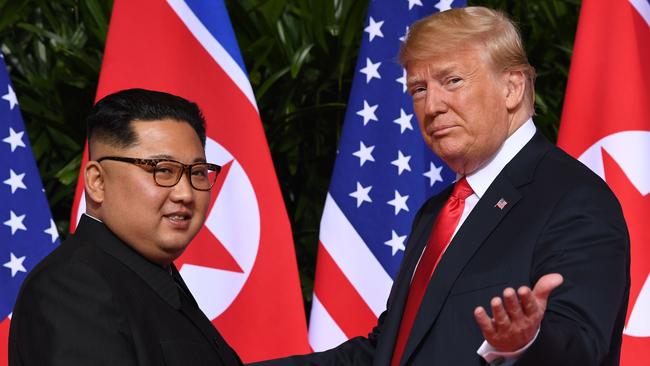
Donald Trump’s presidency came as a rude shock to Southeast Asia the first time around, but with just 10 days to go until Americans head back to the polls, the region may be among the world’s most sanguine at the possibility of his return.
Within hours of taking office in 2019, Trump had torn up the Trans Pacific Partnership, and soon after singled out trade “abuser” Vietnam, and “freeloading” allies Japan and South Korea.
A region that for years had reaped the simultaneous benefits of a US security guarantee and China’s economic rise was suddenly confronted with a leader prepared to blow up alliances and trade deals that didn’t stack up to his transactional view of diplomacy.
Throughout his tumultuous presidency, US competition with China skyrocketed while bilateral relations plummeted, and Southeast Asian nations accustomed to leveraging the region’s great power rivalry in their favour faced intense pressure to pick a side.
Washington’s historic security commitment to the region suddenly seemed less bankable, adding to fears the uncertainty would push some countries further into China’s orbit.
Now, on the brink of a new election contest, the accepted wisdom is that Democratic Vice-President Kamala Harris would offer a more predictable US presidency for a region that prizes stability, less punitive trade measures, and a greater commitment to multilateralism.
Trump 2.0, meanwhile, would mean more protectionist trade measures and a shift in regional security dynamics.
Trump largely avoided Southeast Asia – the world’s fifth-largest economy – as president, while Harris has travelled throughout the region and attended several Association of Southeast Asian Nations summits.
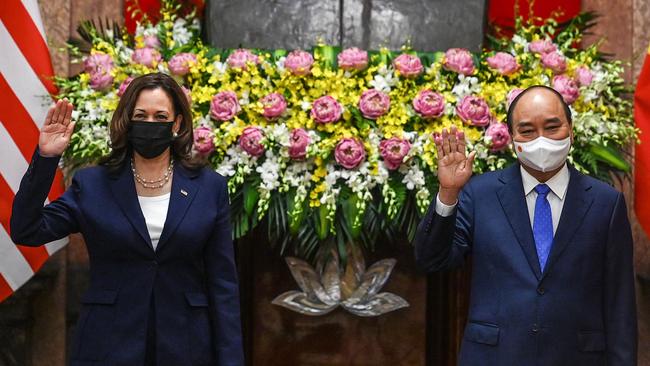
Yet there seems little of the palpable fear there is in Europe or even northeast Asia over what a second Trump presidency could mean, notwithstanding the absence of an Asian Trump whisperer with the skills of Japan’s late prime minister Shinzo Abe.
Why?
There is no simple answer, though Trump’s strongman appeal in a region of declining democracy, lingering scepticism over US reliability, and a view among non-aligned states that China is the inevitable future go some way towards explaining the regional insouciance.
Lowy Institute Southeast Asia program director Susannah Patton says Southeast Asia believes it has “less to lose than the rest of the world – certainly less than Australia or Europe”.
US investment flows into Southeast Asia in the past decade have been half those from China, while confidence in Washington’s historic regional security guarantee was eroding even before the last Trump administration blew a hole in it.
“They already see the US as a pretty distant, unreliable partner that will come and go, and that to me is the bottom line. Because there are already reservations about US staying power, the question about who the next president will be is less consequential here than for the rest of the world,” Patton tells Inquirer.
The US is also seen as having underdelivered on trade, while Joe Biden’s Inflation Reduction Act has locked Indonesia’s Chinese-dominated critical minerals industry – which Jakarta sees as a key driver of future economic growth – out of the US energy transition market.
Even in The Philippines, a US treaty ally firmly in the eye of China’s maritime territorial aggression, there is less angst than one might expect at the thought of Trump’s return to the White House.
Most officials and strategists in Manila aren’t buying predictions that a Trump administration will have less interest in the region than its predecessor, says Philippines security analyst Richard Heydarian.
He points out it was Trump secretary of state Mike Pompeo who first publicly clarified in 2019 that an attack on Filipino forces anywhere in the South China Sea would be covered by the allies’ Mutual Defence Treaty, and under the Trump administration that US freedom of navigation operations peaked in the South China Sea.
“I think of all regional states, The Philippines seems least worried about a possible change of direction in American foreign policy. If you talk to all the top officials, they’re all confident there is sufficient bipartisan consensus,” Heydarian tells Inquirer.
“Based on my own conversations with Eldridge Colby, who will likely end up in a top position should Trump return to the White House, they are actually even more committed to help so-called frontline states like The Philippines.”
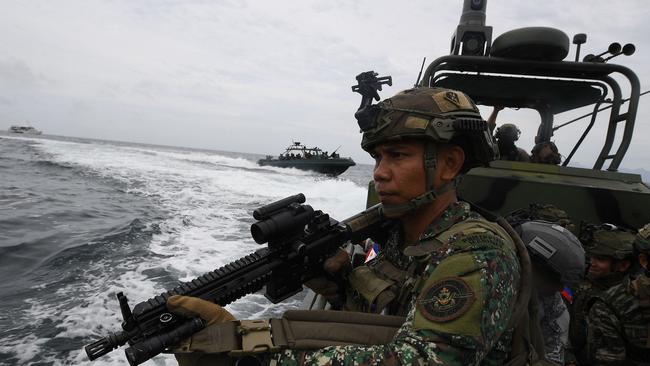
There is always a danger, of course, that the famously erratic Trump “could sleepwalk into conflicts in the Middle East”, affecting America’s ability to help The Philippines should Chinese aggression in the South China Sea – already at perilous levels – further escalate.
But efforts by the Marcos Jnr administration to build alternative security networks with like-minded neighbours – such as the so-called “Squad” with Australia, Japan and the US, and bilateral security agreements with Canberra, Tokyo and Singapore – has helped “Trump-proof” Manila from major foreign policy changes in the White House, he says.
“Trump-proofing” has become a popular catchphrase in the lead-up to November 5 as regional governments and businesses assess their vulnerabilities in the event of a second Trump presidency, or a win for Harris.
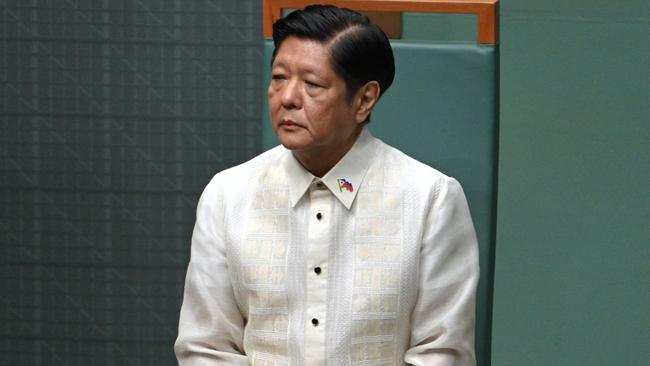
Neither is expected to be particularly good for business in Southeast Asia, given the likelihood a Harris, as president, would continue Biden’s approach of using more conciliatory language on trade while retaining many of Trump’s trade barriers.
But a key question is how an intensified US trade war with China under a second Trump administration might affect the region’s economy and security.
The former president has talked of imposing a 10 per cent across-the-board tariff on all exports, and a punitive 60 per cent on Chinese imports.
A harder line on China could benefit so-called “connector economies” such as Vietnam, Malaysia and Thailand, as it did under the first Trump presidency when China was forced to redirect its supply chains to intermediary manufacturing economies in the region.
But it could just as easily blow up the Southeast Asia “middleman economic model” if Trump closes that loophole by going after third-country supply chains, as Washington is already doing through the Inflation Reduction Act (or IRA), that locks Chinese-dominated industries out of its green energy rebate scheme.
“Southeast Asia has been very successful in profiting off a middleman role. They sell commodities to China, buy components from them and sell elsewhere,” says National University of Singapore politics professor Ja Ian Chong, who warns the region should be more concerned about a Trump victory.
“That middleman role rests on a globalised economy, and one reason many look at Trump with so much distrust is they felt he moved globalisation back. If the US becomes more protectionist, then there will be less demand for Southeast Asian products – so being a middleman will not be as profitable as it used to be and the region may need to find a new economic model.”
Indonesian businesswoman Sherly Maretha, who with her Missouri-based sister owns a small company supplying fresh vanilla to the US, says they are in “wait and see” mode ahead of the US election.
In recent years, Java Sisters has built a broad customer portfolio, supplying food and beverage companies, skincare, cosmetics, and even toothpaste manufacturers.
“There are lots of rumours but we don’t know exactly what’s going to happen,” Martha tells Inquirer, referring to fears of tariff hikes.
“We have partners in the Middle East and Europe too, so if something happens with the US, we’ll shift accordingly.”
At the big end of town, Indonesia Mining Association executive director Hendra Sinadia says his industry pays little attention to US politics given “our trade with the US in minerals and coal is almost non-existent”.
“Our biggest trading partner is China. Whoever wins probably won’t change much, though if Trump wins he might be critical of climate-change policies which could create a positive sentiment toward coal,” Sinadia says.
American investment in Indonesia’s critical minerals industry, crucial for the renewable energy sector, had also been minimal over the past decade, while China had invested heavily in Indonesia, he added.
“Given the current geopolitical situation, we hope for more American investment to avoid the appearance of leaning too much toward China. So, this is where the IRA comes into play, and it depends on how the next US administration views it.”
A second Trump administration forcing Southeast Asian countries to make binary choices on doing business with China, especially in sensitive emerging technologies, would be deeply unwelcome.
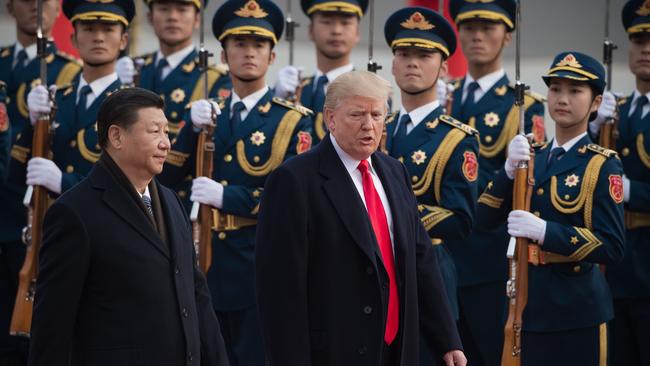
Then again, few would welcome lectures on human rights and democracy from a more liberal-leaning White House under Harris.
“Countries like Cambodia and Thailand don’t mind a strongman. Even in Indonesia that has a lot of appeal,” says Susannah Patton.
Is Southeast Asia’s fear of a values-based, liberal progressive Democratic administration greater than that of a second Trump presidency? The answer likely depends on their respective China policies.
No one in Asia wants to see confrontation with Beijing add to regional tensions, but how the next US administration deals with China’s military build-up in the western Pacific could have a significant impact on allies such as Australia, Japan, The Philippines, and South Korea, and partners such as India, Singapore and Taiwan.
For all his faults, Joe Biden has prioritised Washington’s alliances and partnerships in Asia and has been widely praised for building a so-called “latticework” of trilateral and mini-lateral groups intended to shore up the region’s security in the event of a more isolationist White House.
Under some of America’s most experienced Asia hands, including deputy secretary of state Kurt Campbell and national security adviser Jake Sullivan, the Biden administration has brought Japan and South Korea closer together, strengthened US ties with India and Vietnam, and thrown its support behind the Quad, the Squad and AUKUS.
Could a Trump presidency unravel all that, as the region once again faces the challenge of how to deal with China without a predictable security champion?
A return to Trump’s brand of transactional diplomacy, in which those same allies and partners are harangued for not contributing sufficiently to their own security, will be a bitter pill to swallow.
Veteran Singapore diplomat Kishore Mahbubani predicts the bill for alliance partners Japan, South Korea and Australia – all countries that host US troops on their soil – would rise under a second Trump administration.
“The interesting question is what happens to Australia, because I think (Canberra) will find its 100 per cent reliable ally will suddenly become only 60 or 70 per cent reliable,” he tells Inquirer. “I don’t know who’s paying for the US soldiers in northern Australia but whatever co-payment formula exists, you should expect renegotiation on that.”
He argues Southeast Asian nations are better placed to weather a Trump storm “because, unlike Australia, we don’t put most of our eggs in one basket”.
“Just about every other power is courting ASEAN so there are lots of alternatives. And at the end of the day, China wants a friendly Southeast Asia.”
As long as the Association of Southeast Asia Nations sticks together, the region has “sufficient ballast to protect ourselves”.
ASEAN unity is hardly a guarantee, however, given already-deep rifts inside the regional bloc and the additional stresses a second Trump administration could place on it, says Chong.
“Trump seems a lot angrier and more vindictive this time around and it’s not clear, of the people around him, who will end up running his foreign policy. There will be some who feel the US is unreliable and they should look for other partners.
“For some, that other partner will involve China in a big way.”






To join the conversation, please log in. Don't have an account? Register
Join the conversation, you are commenting as Logout